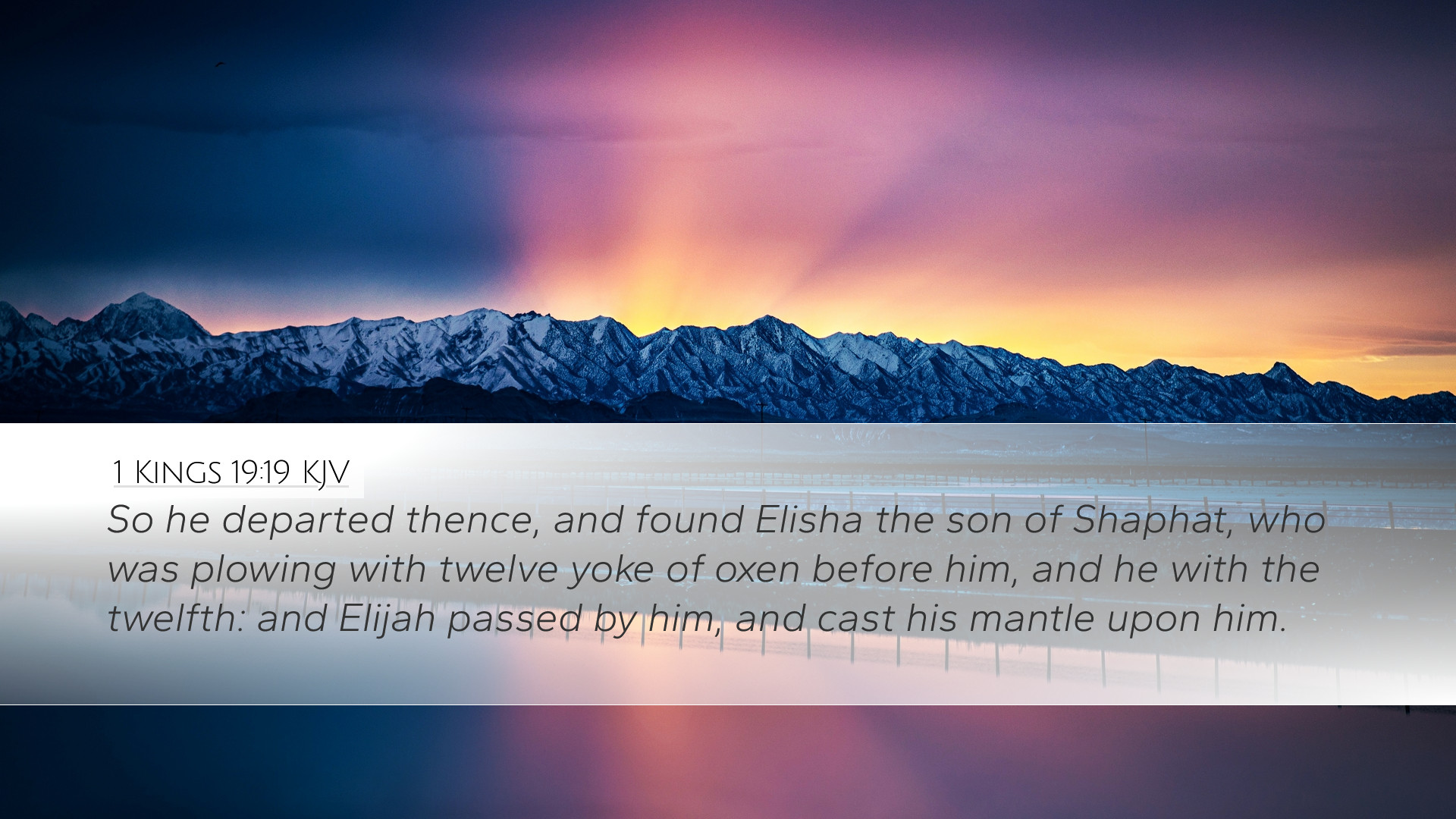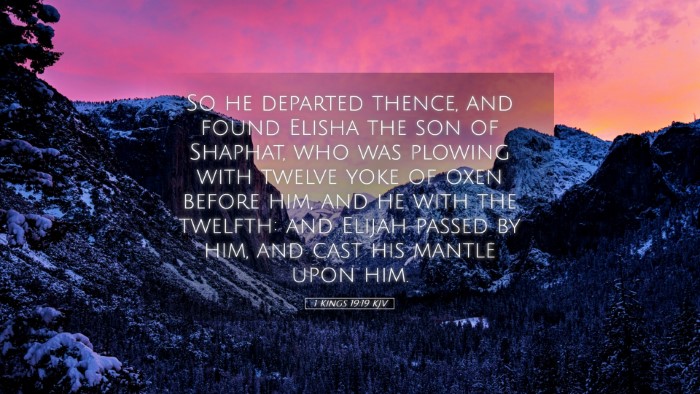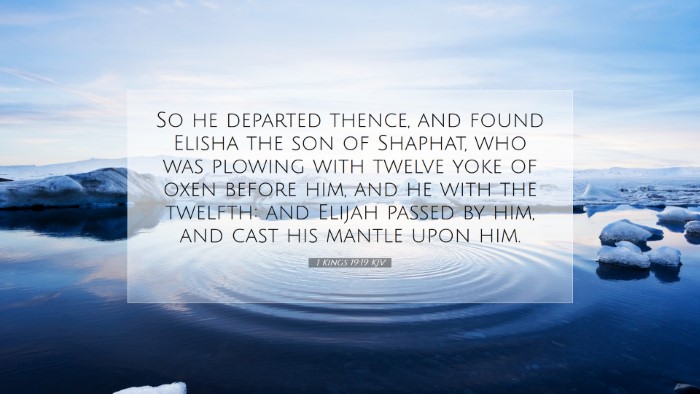Old Testament
Genesis Exodus Leviticus Numbers Deuteronomy Joshua Judges Ruth 1 Samuel 2 Samuel 1 Kings 2 Kings 1 Chronicles 2 Chronicles Ezra Nehemiah Esther Job Psalms Proverbs Ecclesiastes Song of Solomon Isaiah Jeremiah Lamentations Ezekiel Daniel Hosea Joel Amos Obadiah Jonah Micah Nahum Habakkuk Zephaniah Haggai Zechariah Malachi1 Kings 19:19
1 Kings 19:19 KJV
So he departed thence, and found Elisha the son of Shaphat, who was plowing with twelve yoke of oxen before him, and he with the twelfth: and Elijah passed by him, and cast his mantle upon him.
1 Kings 19:19 Bible Commentary
Commentary on 1 Kings 19:19
Verse Reference: 1 Kings 19:19 - "So he departed thence, and found Elisha the son of Shaphat, who was plowing with twelve yoke of oxen before him, and he with the twelfth: and Elijah passed by him, and cast his mantle upon him."
Introduction
The selection of Elisha as a successor to Elijah marks a significant spiritual transition within Israel. This verse encapsulates a pivotal moment where the divine call meets an ordinary life's labor, illustrating God’s method of selecting leaders from the mundane contexts of everyday life.
Contextual Background
The narrative follows Elijah’s confrontation with King Ahab and the prophets of Baal, where he triumphs as a prophet of Yahweh. In the wake of Queen Jezebel's threat against his life, Elijah flees to Horeb, feeling despondent and inadequate. Here God reassures him, revealing that he is not alone in his prophetic mission and directs him to anoint Elisha as the next prophet.
Significance of Elisha's Plowing
Matthew Henry's Perspective: Henry emphasizes the humility and diligence of Elisha's calling. While busy plowing with a substantial number of oxen, indicating substantial wealth and responsibility, Elisha is found not in idle luxury but in hard labor.
Albert Barnes' Insight: Barnes elaborates that the twelve yoke of oxen symbolize readiness for service and God's blessing. The act of plowing underlines a necessary labor in preparation for God's work, demonstrating that God calls those who are industrious and committed.
Adam Clarke's Comments: Clarke notes that this scene illustrates a teaching principle; God often calls individuals to higher purposes while they are engaged in their daily tasks, demonstrating that divine meetings occur in commonplace scenarios.
The Mantle of Elijah
Symbolism of the Mantle: The mantle represents God's anointing and the transfer of prophetic authority. When Elijah casts his mantle upon Elisha, it signifies a divine appointment and an endorsement of Elisha’s future role as the prophet who would succeed Elijah.
Henry's Reflection: Henry points out that this act of casting the mantle was not just a physical gesture but a spiritual commissioning which reflected the passing of God’s anointing and spirit from Elijah to Elisha.
Divine Calling in a Transitional Phase
Theological Implications: The call of Elisha serves as a reminder that God often calls individuals during periods of national disobedience or despair, showcasing His sovereignty in choosing leaders who will uphold His covenant.
Barnes' Take: Barnes posits that the context of Israel’s systemic idolatry highlights the importance of Elisha's appointment. In a nation steeped in apostasy, Elisha was to become a beacon of hope and prophetic voice.
Application for Contemporary Readers
Pastoral Insights: This passage calls upon modern leaders to be attentive to God’s calling in their own lives, perhaps during mundane moments. Pastors and students alike should consider how God might beckon them into deeper service even while engaged in ordinary tasks.
Scholarly Considerations: Scholars are encouraged to explore the interconnectedness of calling and daily labor. The narrative prods theologians to question how divinely appointed leaders emerge from everyday life and what that suggests about God's view of our work.
Conclusion
The story of Elijah and Elisha is not merely a historical account. It serves as a timeless illustration of God's involvement in human affairs, the significance of everyday labor, and the profound impact of divine calling. Elisha's willingness to embrace his new role reflects the attitude every believer should adopt towards God’s calling in whatever form it may present itself.


